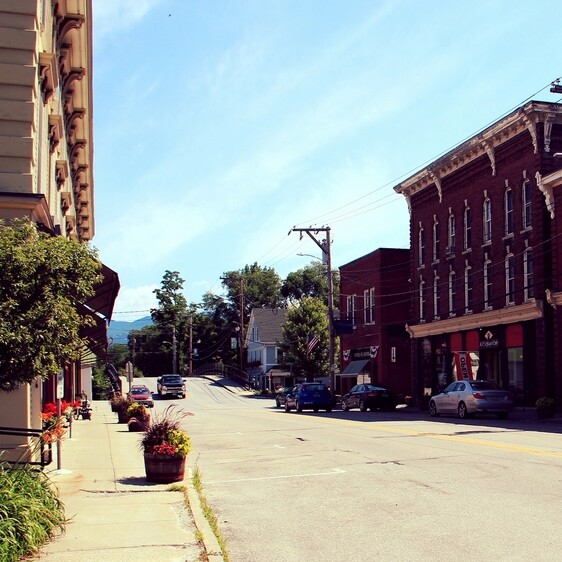Story & Mission
We strive to provide useful resources and frameworks for communities to address vulnerabilities and harness their strengths by supporting local sovereignty and building social connectivity. We aim to create a wider picture of resilience through the re-localization of resources as a tool for climate mitigation, adaptation, and social change.
CROs was founded in the wake of Tropical Storm Irene, and is proof that disasters can be fertile grounds for building more resilient systems.
Community Resilience Organizations – or as we call it, CROs – was born from the aftermath of Tropical Storm Irene in 2011, where we saw firsthand how towns that were more connected responded and recovered better than those that lacked a sense of community. Since CROs first came together to help communities prepare for crises, we have watched the needs of our communities grow and change, and we strive to be a flexible, reliable, climate justice organization that can meet those growing and changing needs.
As we’ve participated in collective responses to crises, we recognized that those most impacted by climate disasters and climate change – including BIPOC, Queer and Trans, rural, and low income individuals – should be resourced by a justice-oriented grassroots organizing hub. So, we built one.
Since our founding, CROs has expanded our reach. We came to understand that community resilience is much more than disaster preparedness. Central to our work is the belief that climate change is both a tremendous global threat and an important impetus for social change. We work to build alternatives to the top-down systems that have created the climate crisis through centuries of organized oppression. These same systems perpetuate racism, classism, sexism, homophobia, and environmental destruction.
CROs believes that the re-localization of resources, including: water, energy, food, and shelter is the most feasible way to systematically reduce global emissions and strengthen communities. We exist to create scalable, adaptable, mechanisms for change.


Community Resilience Organization’s Timeline:
August 28, 2011: Tropical Storm Irene hit Vermont, flooding nearly every river and stream, leaving a dozen rural towns cut off and requiring air lifts out, causing $733 million in damage, and taking seven lives.
2012-2014: We began gathering information and creating a pilot program where local resident-led “Resilience Teams” collaborated with municipal governments to shore up emergency preparedness, build stronger community relationships, and break down silos between departments and sectors.
2015: CROs received its 501(c)(3) nonprofit status.
2016: Version 1 of the ever-evolving Community Resilience Assessment was introduced to towns across the state as a mechanism for understanding full-spectrum resilience and tracking progress over time.
2017: Our first Executive Director was hired to support Resilience Teams and create connectivity across sectors and within State planning processes.
2018: CROs piloted a “Community Sufficiency Grant Program” for Resilience Teams to receive small grants up to $2,500 to support local projects and initiatives. This grant program paired well with the Community Resilience Assessment, where Resilience Teams could use the grant to kick-start projects that emerged as community needs and priorities from the assessment. CROs also created a Campus Evaluation of Resilience Dimensions in collaboration with Second Nature, which was piloted across the country and in workshops at Green Mountain College.
2019: CROs pivoted from focusing on traditional emergency response to climate emergency activism and civil disobedience. With organizations and individuals committed to centering the Just Transition Principles, CROs co-created the Just Transition Coalition to shift the social dial on climate justice activism in Vermont. A big revision of the Community Resilience Assessment took place to shift the focus population of the assessment from traditional emergency responders and town planners to community members.
2020: CROs had an organizational transition welcoming new board leadership and an official adoption of the Just Transition Principles. Immediately when the pandemic began, CROs was directly involved in facilitating and resourcing local mutual aid teams in at least 10 towns. CROs was part of organizing a physical hub location for supplies to be dropped off and picked up, along with fielding needs and matching volunteers to help meet needs. The Regeneration Corps and Seeding Power bodies of work were developed and a focal point of 2020. Regeneration Corps was born from the Just Transition Coalition, and CROs served as its first funder and program manager. Seeding Power introduced and advocated for the first version of the BIPOC-led Land Access & Opportunity Act. CROs also piloted our Community Wellness Gifting Program, distributing wellness resources to maxed out community members and volunteers.
2021: We restructured our internal governance to a co-leadership structure to increase our reach and align our values of non-hierarchical decision-making. The new Director brought in new skills and perspective to shape the organization's offerings. CROs programmatically focused on coalition leadership, with Seeding Power and Moving Money taking center stage. Seeding Power developed a second, more robust version of the BIPOC-led Land Access & Opportunity Act. Moving Money organizers began meeting and planning its course of action. The Community Resilience Assessment was again revised to reflect further learning about community resilience and equity.
2022: CROs began piloting the Grassroots Capacity Building Hub, where we developed several models for equitable fiscal sponsorship with mission-aligned projects and hired a Grassroots Organizer under a “basic universal income” structure. Seeding Power experienced a big win - the Land Access & Opportunity Board was born through a housing bill that was passed. The Moving Money coalition launched, inviting 35 nonprofit and philanthropy leaders to the table to organize collective action to redistribute wealth to BIPOC-led community members and organizations.
2023: CROs expanded the Grassroots Capacity Building Hub, ending the year with seven long-term fiscally sponsored projects, six short-term fiscally sponsored projects, and countless support services for climate justice projects around the state. We scaled up the Community Wellness Gifting program in the Upper Valley and Central Vermont through VT Department of Health grants and ended the year with a statewide network of thirteen wellness practitioners and over fifty wellness gift recipients who utilized free or subsidized services.